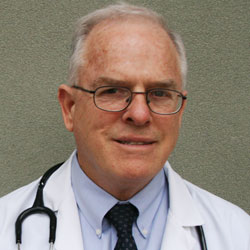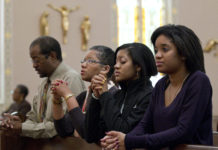 Your grandpa is dying and the family wants you to serve as his health care decision maker. Feeling hesitant, you watch his arrival at the nursing home. He is quiet but alert, smiling weakly when he sees you. The nurse begins her assessment and he tells her the pain isn’t too bad. Later he only takes a little dinner, then lies back and closes his eyes. You whisper a goodbye. Not so bad, you think, he seems peaceful. Outside, you visit with his nurse, wondering how much longer he has. “Oh, I expect he’ll be gone by tomorrow or the next day,” she allows. You thank her, and leave.
Your grandpa is dying and the family wants you to serve as his health care decision maker. Feeling hesitant, you watch his arrival at the nursing home. He is quiet but alert, smiling weakly when he sees you. The nurse begins her assessment and he tells her the pain isn’t too bad. Later he only takes a little dinner, then lies back and closes his eyes. You whisper a goodbye. Not so bad, you think, he seems peaceful. Outside, you visit with his nurse, wondering how much longer he has. “Oh, I expect he’ll be gone by tomorrow or the next day,” she allows. You thank her, and leave.
Driving home, you’re puzzled that he’d be gone so quickly. OK, he’s dying, but how does she know he’ll be gone that fast?
After work the next day you go see him, and ask how long he’s been sleeping. The nurse tells you, “Ever since we started his morphine.” You wonder why he’s on morphine. “We find it helps,” she answers then leaves.
You follow her out, “Excuse me,” she turns. “If he’s sleeping like that, does he get any food or water? I mean he was alert yesterday.” She sets his chart down, “We find when they’re at this stage, they’re more comfortable if we sedate them, and withhold food and water.”
“OK,” you say, “I can see that, except looking at him yesterday he didn’t seem that bad off.” She opens his chart. “Here is what he signed.” She shows you a form which says “Physician Orders for Life-Sustaining Treatment (POLST).” You see “Do not attempt resuscitation” checked, also “Comfort measures only” and “No artificial means of nutrition.”
You are told the order was signed at the hospital by the doctor who was his caregiver there. You ask how orders in the hospital can continue on at the nursing home without any review. And how grandpa’s signature is valid since he’s somewhat senile. “These are POLST orders,” she says. “They mean from here on out, we just keep him comfortable.”
You subsequently find that the nursing home doctor is aware of your grandpa’s present situation and endorses his treatment. You ask to have his care taken over by your doctor who comes in later that evening.
You sit with him as he goes through the chart. “Hmm. He’s getting a pretty good slug of morphine, but I don’t see ‘pain’ in any of the nurses notes.” He flips a few pages, “He was taking food and water — not a lot, but some.” He sets the chart down. “What’s really wrong with him?” he asks. You’re not sure, “I thought he had cancer.” The doctor flips through the chart aimlessly, “Well, yeah, he has cancer, and he’s senile, and he’s weak, but so what?” You watch him order “discontinue morphine, diet to tolerance,” and some lab.
Next day, grandpa is sitting up in bed, looking very much like the day he came in, alert but weak, seeming happy to see you. “Do you hurt, Grandpa?” you ask. “Just a little,” he says, “but I wanted to be awake for when you come.”
End of life care
We don’t have to use extraordinary means to keep someone alive. But we can never do something — or withhold something — that would directly kill a person, such as over sedating, or withholding nutrition and hydration.
Typically “extraordinary” care means not allowing a dying person to die naturally. It usually means going to some extreme — pain, expense, or burden on the patient or caregivers — and generally doing so when there is little, or at least disproportionate hope of benefit. One may use extraordinary means to stay alive, but there is no obligation under most circumstances. Pastoral advice should be sought.
If you find yourself confronting a POLST (not yet used in Arizona), or similar document or any Advance Directive, evaluate it very carefully and review periodically, because patients change.
Catholics pray for a happy death. And a dying person can feel presumption, despair, or be in denial of impending death. Consider that a patient may need to work through these or other serious conscience issues and they deserve all the time they are allowed. Dying in comfort is an important concern, but it is not the only concern.
We are blessed to have hospice care coming into the Valley committed to the Ethical and Religious Directives for Catholic Health Care Services (ERD’s) and to following Magisterial teaching in care of the dying.
Benedicamus Domino.




![[VIDEO] Make Sunday feel like Sunday again](https://www.catholicsun.org/wp-content/uploads/2021/04/2021-YOUTUBE-BISHOP-MESSAGE-THUMBNAIL-ENGLISH-218x150.png)

